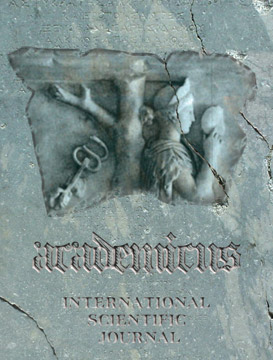Title:
Author(s):
Abstract:
A coup d’etat is defined as “a sudden and decisive action in politics, especially one resulting in a change of government illegally or by force.” As one looks through all the coup d’etats that have occurred throughout the history in various parts of the world, one can observe that often the protagonists of such events are political enemies, military leaders, or distressed insiders. Indeed, one is hard pressed to find where a coup d’etat has been executed by way of a poor legal reasoning of a Constitutional Court. Well, that is until now! In the newest country in Europe, the Republic of Kosovo, major international and domestic investments are being made on institution building. One of the beneficiaries of such investments has been the newly formed Constitutional Court of the Republic of Kosovo. Soon after its establishment, this young court faced its first tough decision, namely a challenge to the President of the country regarding his alleged serious violation of the Constitution by holding posts as President of the country and Chairman of his party. In a highly controversial case, marred with procedural irregularities, judicial misconduct, lack of due process, human rights violations, regular media leaks, and behind-the-scenes international and domestic political influences on the Court, a split Court decided that the President had seriously violated the Constitution. This decision led to the President’s resignation, which caused a political imbalance that still lingers, further harming Kosovo’s long term interests and prospects. But more importantly, some argue that this marks the first case where a coup d’etat that took down a President was executed by a Constitutional Court. This paper argues that the Court should have dismissed the claim of the MPs as inadmissible on procedural grounds, specifically that it was filed by the MPs after the time permitted by law and that the MPs never maintained the number of 30 members that were needed for the group to be an authorized party. Additionally, even on the merits, the Court failed to distinguish between the constitutional requirement to not exercise a party function, which the President in this case did not do, but rather simply held the position in a suspended mode. Moreover, even had the President’s holding of the position amounted to a violation of the Constitution, in no way did that equate to a serious constitutional violation. Still, the Court held contrary to the Constitution, applicable laws, and the available evidence before it and found that the President had seriously violated the Constitution.
Keywords:
Kosovo, Constitution, President, serious, violation, position, party
Full Text PDF:
References:
View complete reference list, click
here
Digital Object Identifier DOI:
The article's content ©Academicus™ A Constitutional Coup! The Take-Down of the First President of the Republic of Kosovo
by
Dr. (PhD) Korab R. Sejdiu
is licensed under a Creative Commons
Attribution-NonCommercial 4.0 International License.
Presented:
February 2013
Included for Publishing:
June 2013
Published:
July 2013,
Volume 4,
Issue 8
Academicus International Scientific Journal is an Open Access Journal. This means that all content is freely available without charge to the user or his/her institution. Users are allowed to read, download, print, search, or link to the full texts of the articles in this journal without asking prior permission from the publisher or the author. This is in accordance with the BOAI definition of open access. Users are obliged to cite the source (Academicus International Scientific Journal) and the author, according to the international citation standards.
To learn more about the OA Policy followed by Academicus ISJ, read Journal Regulations
Academicus
International Scientific Journal
pISSN 2079-3715
eISSN 2309-1088
Address:
Sheshi i Flamurit, Rruga Muze
Al-9401 Vlorë, Albania
Tel: +355 68 60 60 555
info@academicus.edu.al
https://academicus.edu.al



 Scholar
Scholar
 Crossref
Crossref
